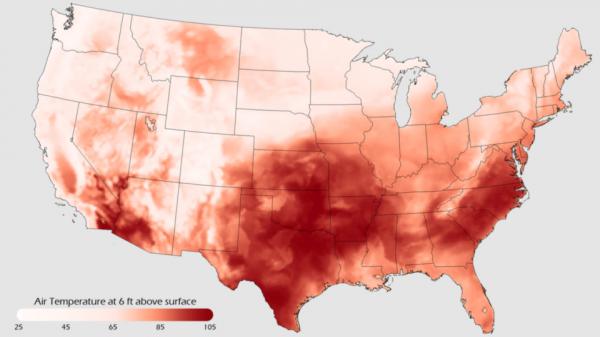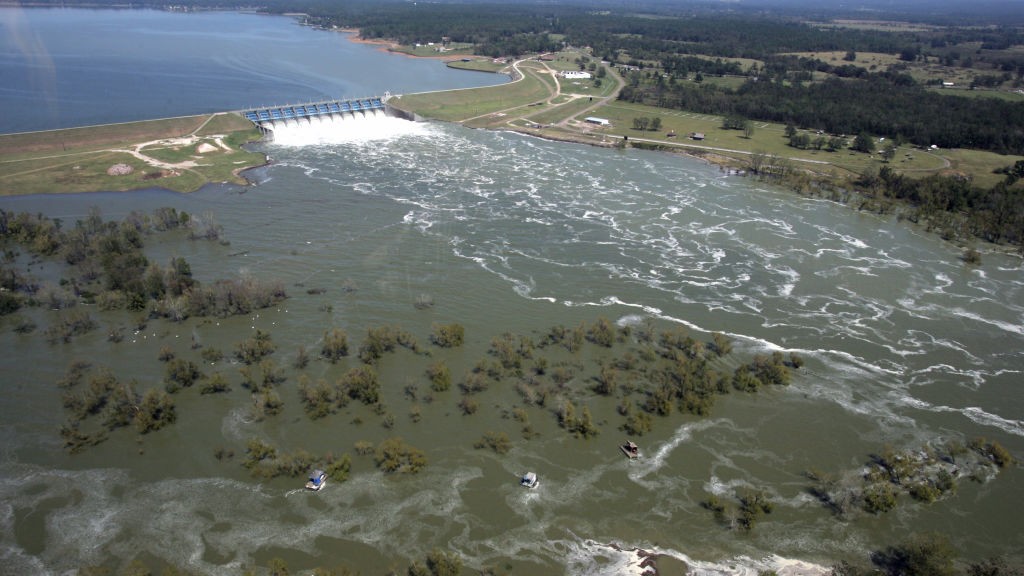
Wild Summer Heat Wave Smashes Records

As the temperatures have risen across the United States this summer, weather records have fallen left and right.
The horrible July heat wave , lasting weeks in some cities, the entire month in others, has affected nearly 200 million people in the United States at some point.
Plenty of records were set for highest temperatures. For the month of July, 1,479 daily records have been broken for highest temperature, according to the National Climatic Data Center (NCDC).
Highs and lows
Newark, N.J., set an all-time high at 108 degrees Fahrenheit (42.2 degrees Celsius) on July 22, breaking the record of 105 F (40.6 C), set in 2001.
In Washington, D.C., Dulles International Airport recorded its highest July temperature of all time at 105 F (40.6 C), on July 22. On that same day, water in the nearby Potomac River was the hottest ever recorded at 96 F (35.4 C) (records go back only to 1988), reported the Capital Weather Gang blog.
Neither of those cities had it as bad as Morehead, Minn. On July 19, the heat index there a measure of humidity and temperature that indicates how hot the weather feels was 134 F (56.7 C), making it the hottest place on Earth for the day, said meteorologist Heidi Cullen, of Climate Central, in an interview on National Public Radio. (The National Weather Service later said this reading could be an anomaly due to the local weather station's location in a very wet field, and not representative of the entire town.)
Get the world’s most fascinating discoveries delivered straight to your inbox.
Sweaty days were not the only thing remarkable about the July heat wave. The heat wave's calling card was the scant relief after sunset. For July, 3,290 records were broken for daily highest minimum temperature, according to the NCDC.
Temperatures stuck in the 80s F (around 26 to 30 C) overnight in many cities. Washington, D.C., tied a record for warmest low temperature at 84 F (28.9 C).
Record high days, followed by record high lows overnight, continued for days, even weeks in some places. For many in the drought-stricken south-central part of the country, the heat hasn't relented.
Day after day
Fort Smith, Ark., set a record for consecutive 100-degree days with 24 at or above that temperature through July 28, according to the National Weather Service.
Abilene, Texas, also set a record for most 100-degree days, with 47 as of July 27.
Those records are not close to the worst heat wave of all time , however. That record is claimed by Marble Bar, Australia. From Oct. 31, 1923, to April 7, 1924 (summer in the Southern Hemisphere), the tiny town scorched with 160 consecutive days above 100 F, according Australia's Bureau of Meteorology. In the United States, Death Valley has come close to Marble Bar's record, with 154 consecutive days of at least 100 F, in 2001.
The July weather records haven't all been heat-related. Chicago's O'Hare International Airport saw 6.91 inches (17.6 centimeters) of rain on Saturday morning (July 23), reported the Chicago Tribune. That's the biggest single-day rainfall in the city's records.
Email OurAmazingPlanet staff writer Brett Israel at bisrael@techmedianetwork.com. Follow him on Twitter @btisrael.
 Live Science Plus
Live Science Plus





